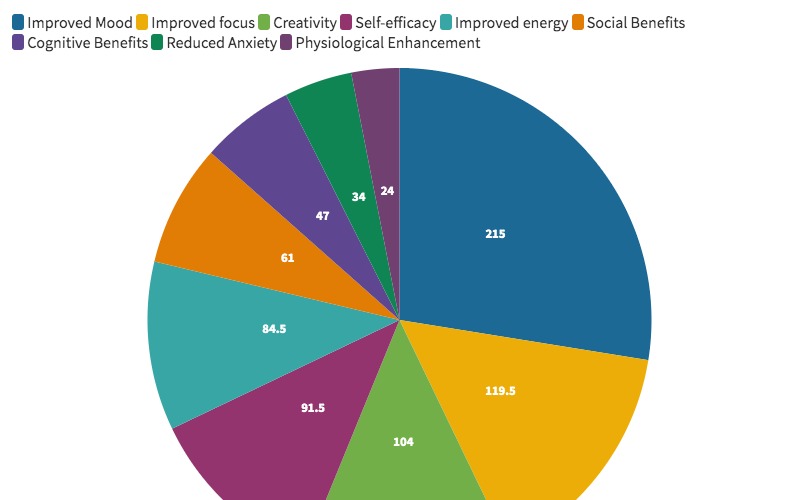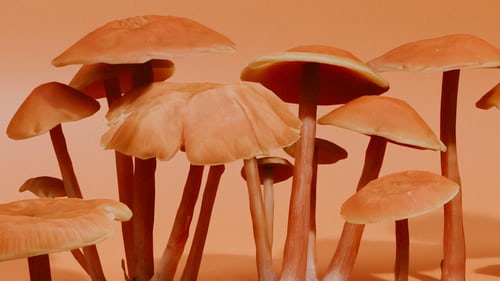In recent years there has been a growing community of people using substances such as LSD and magic mushrooms to “microdose”. First gaining popularity among circles in the Silicon Valley, laws in some US states decriminalising the possession of small amounts of hard drugs (including LSD and magic mushrooms), and scientific studies continuing to explore its benefits, microdosing’s popularity continues to rise.
What is “microdosing”?
Microdosing involves the regular consumption of a dose of a psychedelic substance that is usually 5–10 percent of what is considered a ‘recreational dose’. The substance most commonly used for microdosing is LSD (otherwise known as acid), usually taken as a dose of between 8-15 micrograms every few days, as recommended by psychologist and micro-dosing guru James Fadiman. This regimen was later popularised in Ayelet Waldman’s 2016 book A Really Good Day and subsequent media tour.
Although LSD might be the most popular substance to microdose, it is also possible to microdose with psilocybin (the active alkaloid found in magic mushrooms) and iboga (a psychoactive shrub). The intended effects of microdosing these substances are said to be very much the same – users report increased creativity, better mood and focus, and improvements to mental health problems such as depression and anxiety.
The science behind the magic (mushrooms)
The classification of LSD and magic mushrooms as Class A drugs has resulted in a absence of official scientific study into the psychedelic substances of LSD and psilocybin.
Most reported results are amateur experiments conducted by microdosing hobbyists in their self-studies. Not only does the legality pose an issue, but from a scientific point of view, the effects of microdosing are extremely hard to measure. As many amateur microdosers will tell you, the point of microdosing is to not feel anything at all. Generally speaking, if you can notice the effects, you’re not doing it right. This makes it difficult to measure and control the impacts on the brain, and hard to reach any conclusive results.
“The benefit of it being micro is you go about your normal daily activities,” says executive director of the psychedelic research organisation MAPS, Rick Doblin. “Your cognitive processing is slightly enhanced … but you can do all sorts of things that you wouldn’t do if the dose were higher.”
A study of microdosing from 2019 – one of the first studies of its kind – concluded that effective use of microdosing can lead to benefits such as improved mood and focus.

The study, conducted in the US, demonstrated that out of 278 participants, 215 reported an improvement in their mood. More than a third of participants reported improved focus. Other commonly reported benefits included creativity, self-efficacy and improved energy.
A community of microdosers
Those interested in microdosing have a plethora of resources to choose to educate themselves from. From numerous books on the subject, including Waldman’s aforementioned A Really Good Day, to how-to articles on microdosing dedicated websites, using psychedelics for microdosing is a growing trend with a wide-ranging demographic. From full-time parents to millennial workaholics, people from all backgrounds are turning to micro-dosing to improve their quality of life.
Perhaps unsurprisingly, a number of Reddit forums devoted to micro-dosing have been created for discussion relating to micro-dosing research, experiments, regimens and experiences. The largest of these subreddits is r/microdosing. Created in 2013, the subreddit had amassed 7500 members in 2016, but growing exponentially to now having more than 135,000 members.

One member of the subreddit r/microdosing is John*, a self-confessed family man who started micro-dosing 2 years ago. For John, microdosing LSD is the easiest and safest means through which to explore psychedelics.
“As a father with responsibilities, I just can’t easily take a day out to trip. Microdosing just seemed like an easy and low-risk approach to experiment with psychedelics.”
Other microdosers have echoed John’s sentiments. Another subreddit, r/microdosingparents, is a community of parents who find that microdosing can even go so far as to improve their parenting skills. John finds that it turns a good into a great day: “I have more fun with others, I’m more patient and fun around the kids, more able to appreciate the small things in life. By removing some anxiety (not that I have a problem with it), it makes me more productive at times too as I don’t avoid tasks I don’t like to do.”
Laws are changing, but more research is needed
In 2020, Oregon voters made history by being the first to pass state law in the US that criminalised the possession of small amounts of hard drugs. Oregon voters also approved a measure making it the first state to legalize the therapeutic use of psychedelic mushrooms.
Many, like John, hope that these changes in the law will lead to more scientific research into micro-dosing and better regulation of psychedelic substances in circulation.
“At the end of the day, I’m my own test rat. Having some scientific research into the effects would help to decide whether it’s worth continuing, and how to do it safely.”
*Names have been changed.